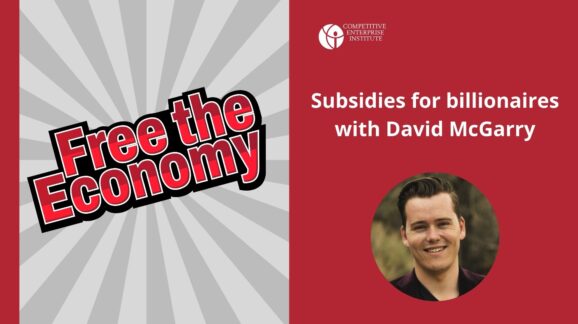There are two main areas in which Congress can enact meaningful reform. The first is to rein in regulatory guidance documents, which we refer to as “regulatory dark matter,” whereby agencies regulate through Federal Register notices, guidance documents, and other means outside standard rulemaking procedure. The second is to enact a series of reforms to increase agency transparency and accountability of all regulation and guidance. These include annual regulatory report cards for rulemaking agencies and regulatory cost estimates from the Office of Management and Budget for more than just a small subset of rules.
In 2019, President Trump signed two executive orders aimed at stopping the practice of agencies using guidance documents to effectively implement policy without going through the legally required notice and comment process.
Featured Posts

Blog
The week in regulations: Bird hunting and food coloring
The Federal Register’s website became less transparent about rule counts and other data. President Trump threatened to send the military into a third city. The…

Blog
Free the Economy podcast: Subsidies for billionaires with David McGarry
In this week’s episode we cover White House intervention in corporate ownership, the nation’s falling economic freedom ranking, and welcome new…

News Release
Federal appeals court rules on NLRB unconstitutionality
The 5th Circuit Court of Appeals today issued a ruling suggesting the structure of the federal government’s top labor dispute regulator, the National Labor Relations…
Search Posts
Study
Ten Thousand Commandments 2012
The scope of federal government spending and deficits is sobering. Yet the government’s reach extends well beyond the taxes Washington collects and its deficit spending…
Blog
CEI’s Battered Business Bureau: The Week in Regulation
62 new final rules and 1,577 new Federal Register pages covering everything from sunscreen to commericial driver's licenses.
Blog
Austerity Is Mythical, But It Would Have Real Benefits
Left-leaning commentators are wrong to decry “austerity” in Europe, since, as the Richmond Times-Dispatch notes, such “austerity” is largely mythical: European nations have not…
Blog
Framing the Debate on Chemical Regulation
Last week, CEI hosted a congressional briefing on chemical policy and regulation (the video of the event is forthcoming). A news story in…
Blog
Why JPMorgan Chase’s Mark-to-Market Losses Don’t Bolster Case for Volcker Rule
There is much still to be known about the $2 billion in losses JPMorgan Chase is reporting due to a flawed hedging strategy. But this lack of…
Blog
Intellectuals Are the Shoeshine Boys of the Ruling Elite
“Why do so many intellectuals lean politically to the left?” CEI President Fred Smith has written extensively on that question. In today’s Wall Street Journal, Harvard…
Staff & Scholars

Clyde Wayne Crews
Fred L. Smith Fellow in Regulatory Studies
- Business and Government
- Consumer Freedom
- Deregulation

Ryan Young
Senior Economist
- Antitrust
- Business and Government
- Regulatory Reform

Fred L. Smith, Jr.
Founder; Chairman Emeritus
- Automobiles and Roads
- Aviation
- Business and Government

Sam Kazman
Counsel Emeritus
- Antitrust
- Automobiles and Roads
- Banking and Finance

Marlo Lewis, Jr.
Senior Fellow
- Climate
- Energy
- Energy and Environment